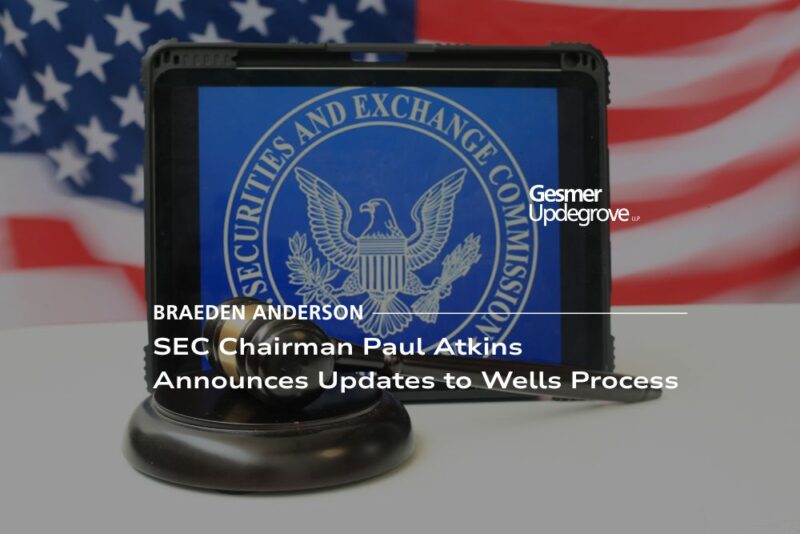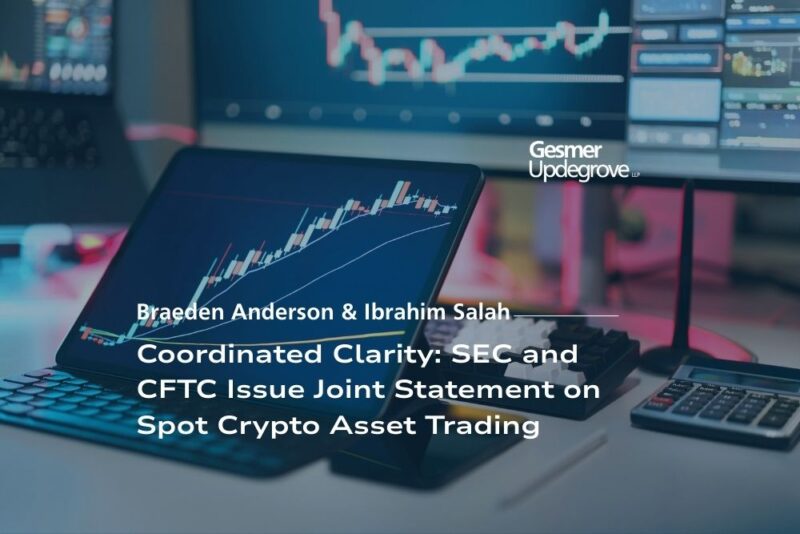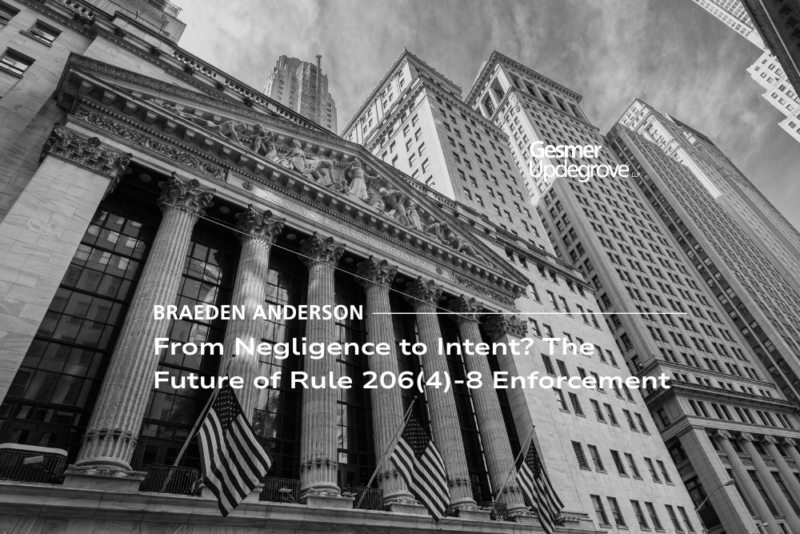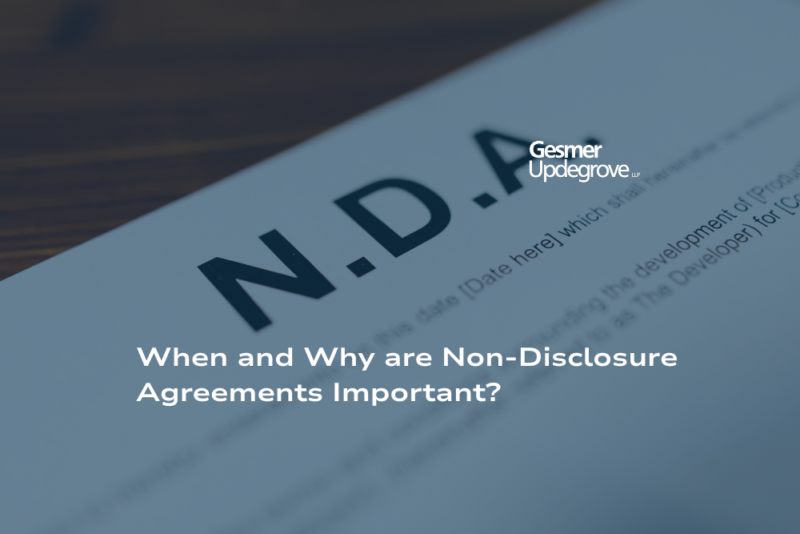On August 6, 2025, the U.S. Court of Appeals for the Ninth Circuit issued its opinion in Powell v. SEC, No. 24-1899, rejecting a facial challenge to the U.S. Securities and Exchange Commission’s longstanding “no-admit/no-deny” settlement policy codified in Rule 202.5(e) (the “Rule”), colloquially referred to as the “gag rule.” The unanimous decision leaves intact a framework under which settling parties must agree not to publicly deny the allegations in SEC enforcement actions they resolve, even after settlement.
Although the panel expressly limited its holding, the opinion affirms the SEC’s authority to condition settlement on speech restrictions, citing the well-established principle that constitutional rights may be waived voluntarily. At the same time, the decision acknowledges that, in certain applications, the Rule could raise substantial First Amendment concerns.
This development represents another in a series of appellate decisions—following SEC v. Novinger (5th Cir.), Romeril v. SEC (2d Cir.), and SEC v. Moraes (S.D.N.Y.)—that have declined to invalidate the Rule on constitutional grounds.
Background on Rule 202.5(e)
The Rule, first adopted by the SEC in 1972 in the wake of the Wells Committee Report, reflects the agency’s policy that defendants who settle enforcement actions must refrain from making any public statement that denies the allegations or creates the impression that the allegations lack factual basis.
The standard settlement formulation is familiar: the settling party “neither admits nor denies” the allegations, but agrees not to publicly contest them. The provision is incorporated as a matter of course in virtually all SEC settlements, regardless of case type or forum. The stated rationale is to prevent defendants from re-litigating matters in the press and undermining the deterrent value of settlements.
The Petition and Procedural History
In 2018, the New Civil Liberties Alliance (“NCLA”) filed a petition urging the SEC to amend the Rule, arguing that it constitutes an unlawful prior restraint, is viewpoint-based, and was adopted without the notice-and-comment process required under the Administrative Procedure Act. In January 2024, the Commission—over Commissioner Hester Peirce’s dissent—denied the petition.
The petitioners, twelve in total, included eight individuals whose settlements with the SEC had triggered the Rule. Among them was former Xerox CFO Barry Romeril, whose earlier challenge to the Rule was denied certiorari by the U.S. Supreme Court in 2022.
Following the Commission’s denial, the petitioners sought review in the Ninth Circuit.
Facial Validity of the Rule
The court’s opinion, authored by Judge Daniel Bress, held that the Rule is not unconstitutional on its face. Relying on Town of Newton v. Rumery and related precedent, the panel reaffirmed that parties may voluntarily waive constitutional rights, including First Amendment rights, in exchange for settlement benefits. The court found no evidence that the Rule invariably operates to suppress lawful speech in an unconstitutional manner.
Contact Us Today For More Information On This Policy:
Limitation of Holding
Significantly, the panel underscored the narrow scope of its decision. It expressly declined to address the “wisdom of regulatory policy” and emphasized that the opinion did not preclude as-applied challenges in future cases. The court acknowledged that “if the SEC utilized Rule 202.5(e) to prevent criticism of the agency, its officers, or its enforcement programs, the Rule would likely raise substantial First Amendment concerns in application.”
SEC’s Institutional Interests
The panel also recognized the SEC’s interest in promoting settlement efficiency, observing that removing the Rule could reduce the number of matters resolved without litigation. According to the court, the Rule gives defendants an “option” to resolve cases on mutually agreed terms, including the speech restriction.
The Voluntariness Debate
The word “voluntary” appears 26 times in the court’s opinion. This repetition reflects the central premise of the decision: that defendants choose to settle and, in doing so, choose to accept the gag provision.
Critics, including Commissioner Peirce in her 2024 dissent, argue that this voluntariness is often more theoretical than real. For individuals and smaller entities facing protracted SEC investigations, mounting legal fees, reputational harm, and operational disruption, settlement may be the only economically viable path. The bargaining power imbalance is, in many cases, overwhelming, and the “choice” to accept the gag may be illusory.
A Policy Outlier
The SEC is nearly unique among federal agencies in requiring such a provision as a matter of policy. While the Commodity Futures Trading Commission occasionally includes similar language, agencies such as the Federal Trade Commission do not. As Judge Abrams noted in Moraes, “Of all the federal agencies that broker settlements, the SEC stands nearly alone” in demanding this speech restriction.
Potential Avenues for Future Challenge
While the Ninth Circuit rejected the facial challenge, it suggested that challenges to specific applications of the Rule remain viable. Such cases could arise if:
- The SEC seeks to enforce the Rule to penalize speech that does not directly deny factual allegations;
- The Rule is applied to suppress legitimate criticism of the Commission or its officials; or
- Settlement circumstances demonstrate extreme coercion or lack of meaningful choice.
That said, any post-judgment challenge would confront the narrow grounds for relief under Federal Rule of Civil Procedure 60(b)(4), which requires a jurisdictional defect or denial of due process.
Key Takeaways
- Facial challenge rejected – The Rule remains valid on its face under existing precedent.
- As-applied challenges possible – Future cases may present fact patterns that invite a different judicial outcome.
- Policy change must come from the Commission – Enforcement attorneys have no discretion to omit the gag provision; reform would require agency or legislative action.
- Transparency concerns persist – By silencing defendants post-settlement, the Rule limits public access to potentially credible criticism of the government’s enforcement actions.
Conclusion
The Ninth Circuit’s decision in Powell v. SEC reaffirms the durability of the SEC’s no-admit/no-deny settlement framework while acknowledging unresolved constitutional questions about its application. For now, the Hobson’s choice remains: litigate at extraordinary cost and risk, or settle and agree to permanent silence.
Whether this balance serves the public interest or unnecessarily curtails open debate about government action is, for the moment, a policy judgment the courts have left to the Commission.
Meet the Author
Check Out Our Latest Publications:
- CRYPTO TAX: YEAR-IN-REVIEW

- SEC Chairman Paul Atkins Announces Updates to Wells Process

- Coordinated Clarity: SEC and CFTC Issue Joint Statement on Spot Crypto Asset Trading

- From Negligence to Intent? The Future of Rule 206(4)-8 Enforcement

- When Does My Company Need to Qualify to do Business in Multiple States?

- When and Why Are Non-Disclosure Agreements Important?

